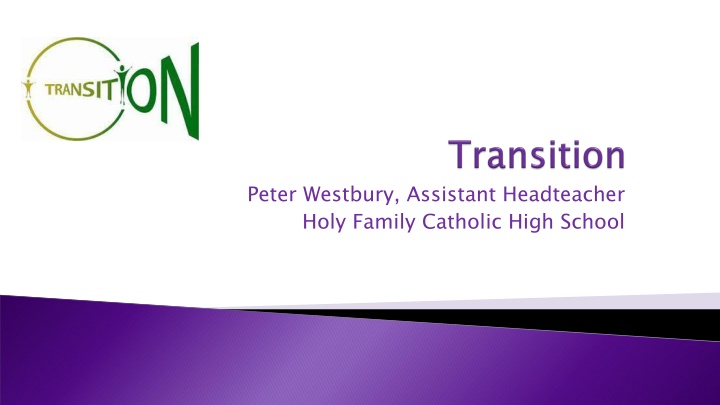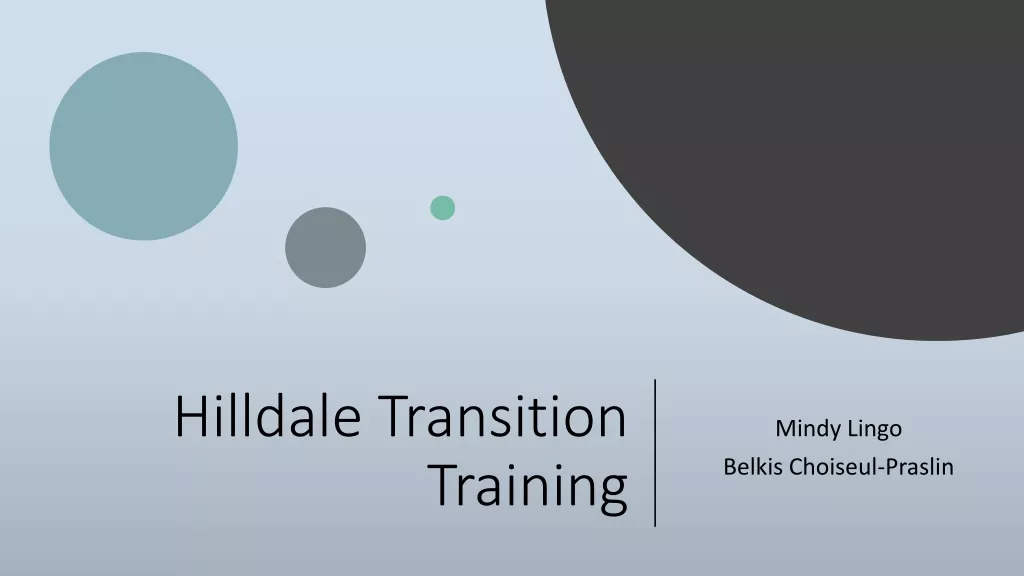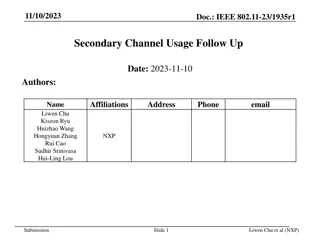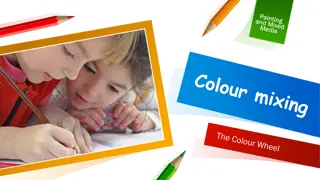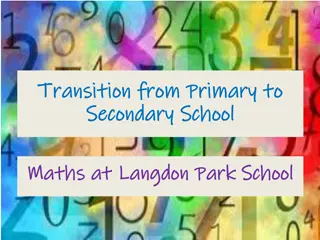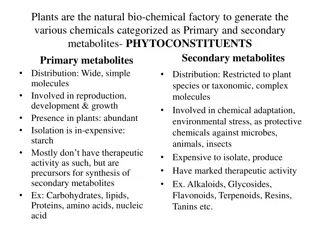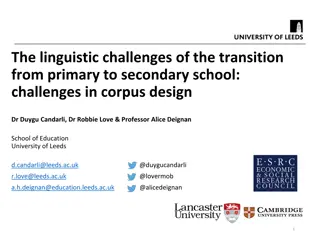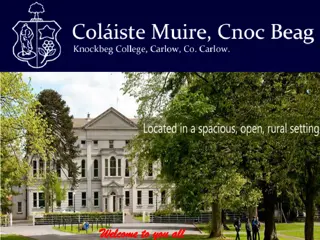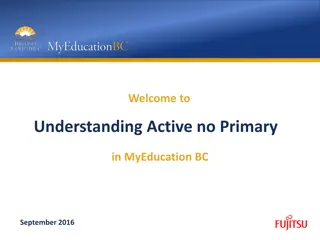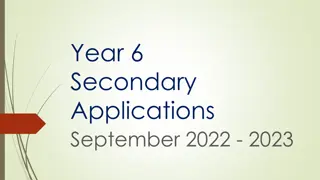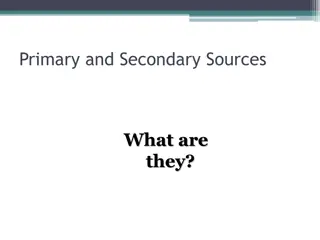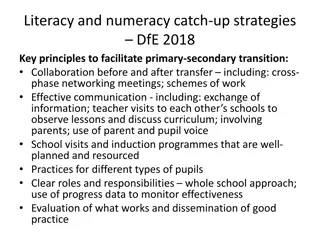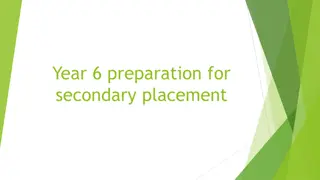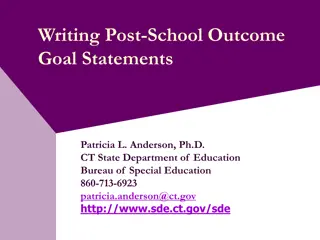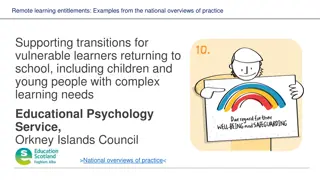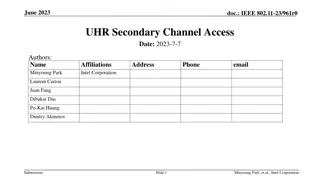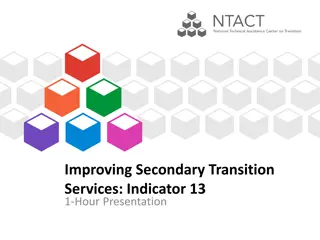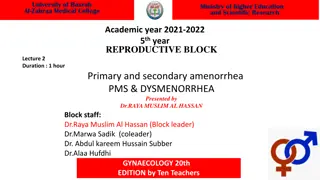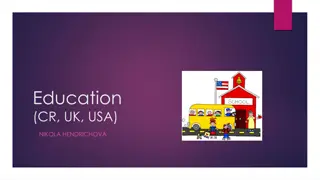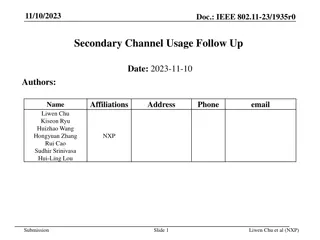Successful Transition Strategies for Primary to Secondary School
Institute of Education's data analysis highlighted five key aspects of a successful transition for students, including developing new friendships, boosting self-esteem, showing interest in school work, adapting to routines, and experiencing curriculum continuity. Issues faced by Peter Westbury, Assistant Headteacher, include primary liaison, pre-transfer concerns, start of KS3 challenges, and ensuring a successful KS3 journey.
Download Presentation

Please find below an Image/Link to download the presentation.
The content on the website is provided AS IS for your information and personal use only. It may not be sold, licensed, or shared on other websites without obtaining consent from the author.If you encounter any issues during the download, it is possible that the publisher has removed the file from their server.
You are allowed to download the files provided on this website for personal or commercial use, subject to the condition that they are used lawfully. All files are the property of their respective owners.
The content on the website is provided AS IS for your information and personal use only. It may not be sold, licensed, or shared on other websites without obtaining consent from the author.
E N D
Presentation Transcript
Peter Westbury, Assistant Headteacher Holy Family Catholic High School
What makes a successful transition Sharing strategies and issues Primary liaison Pre transfer Start of KS3 Successful KS3 The wasted years
What makes a successful transition Sharing strategies and issues Primary liaison Pre transfer Start of KS3 Successful KS3 The wasted years
Institute of Education data analysis revealed five aspects of a successful transition. A successful transition for children involved: developing new friendships and improving their self esteem and confidence having settled so well in school life that they caused no concerns to their parents showing an increasing interest in school and school work getting used to their new routines and school organisation with great ease experiencing curriculum continuity
What makes a successful transition Sharing strategies and issues Primary liaison Pre transfer Start of KS3 Successful KS3 The wasted years
Your thoughts Biggest issues you face Experiences Paperwork Primary liaison Pre transfer Start of KS3 Successful KS3
School event invites Workshops (eg Science, Drama) Year 5 and Year 6 days at feeder secondary school Support for Level 6 students (masterclasses?) Sports events Previous pupils visiting primary Your thoughts Biggest issues you face Experiences Paperwork
Meetings with Y6 teachers and other staff (eg SENCo) Taster Day (in possible new groups) Parent/student new intake evenings (chance to meet the form tutor and Progress Leader/HOY Information pack to parents welcome, dates, important information and forms for completion, summer school detail, music lessons, etc. Individual pupil information sharing issues and concerns Tours of school / open evenings Your thoughts Biggest issues you face Experiences Paperwork
Find way around Balance of form groups (using gained information) Time with form class and tutor Only year group in school for time Early lunches Team building events Year 7 yard Sept/October mini-parents evening/ meet the tutor Your thoughts Biggest issues you face Experiences Paperwork
Early testing and correct setting Use of previous data for all teaching and pastoral staff Progress monitoring Leadership emphasis on key stage curriculum and model structure Key Stage 3 graduation and rewards Your thoughts Biggest issues you face Experiences Paperwork
What makes a successful transition Sharing strategies and issues Primary liaison Pre transfer Start of KS3 Successful KS3 The wasted years
In his Annual Report 2013/14, Her Majestys Chief Inspector reported that primary schools had continued to improve but the performance of secondary schools had stalled. The report noted that one of the major contributory factors to this was that, too often, the transition from primary to secondary school was poorly handled. Consequently, the gains made by pupils at primary school were not embedded and developed at Key Stage 3.
the quality of teaching and the rate of pupils progress and achievement were not good enough. slow progress made in English and mathematics and the lack of challenge for the most able pupils. achievement was not good enough in just under half of the MFL classes observed, two-fifths of the history classes and one third of the geography classes. a serious concern given the government s ambition for all pupils starting Year 7 in September 2015 to take the EBacc subjects when they reach their GCSEs in 2020 lack of priority given to Key Stage 3 by many secondary school leaders too many secondary schools did not work effectively with partner primary schools to understand pupils prior learning and ensure that they built on this during Key Stage 3 leaders prioritise the pastoral over the academic needs of pupils during transition from primary school. many secondary schools do not build sufficiently on pupils prior learning.
This link is for The Wasted Years report and findings: https://www.gov.uk/government/publications/ofsted-key-stage-3-curriculum-survey-2015-8-good- practice-case-studies Other helpful links: https://www.tes.com/news/school-news/breaking-views/opinion-our-findings-key-stage-3- provision-are-worrying-says-ofsted http://www.ioe.ac.uk/successful_transition_from_primary_to_secondary_report.pdf http://www.education.leeds.ac.uk/research/projects/the-challenge-of-transition http://www.theschoolrun.com/school-life/transition-secondary-school
